| Posted on | science-technology
How can AI improve Human Resources?
| Posted on
Here are some ways that AI can improve human resources:
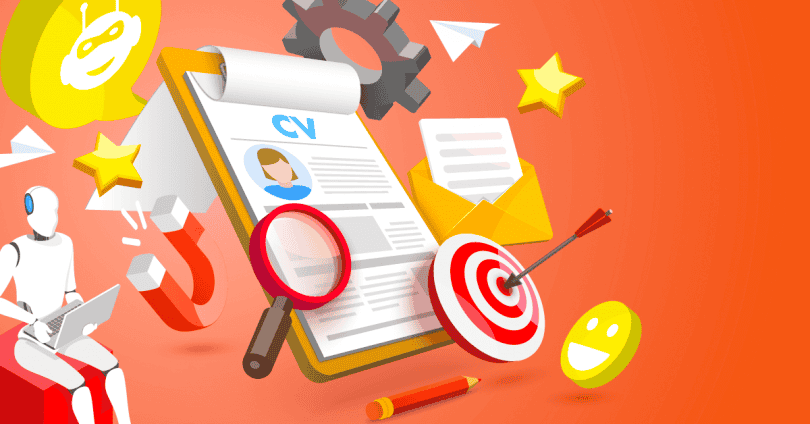
Automate repetitive tasks:- AI can automate many of the repetitive tasks that HR professionals typically do, such as processing paperwork, scheduling interviews, and managing benefits. This allows HR professionals to focus on high-impact activities that contribute to the organization's success.
Improve decision-making:- AI can analyze large amounts of data to identify patterns and trends that would be difficult for humans to spot. This can help HR professionals make better decisions about everything from hiring to compensation.
Personalize the employee experience:- AI can be used to personalize the employee experience by providing tailored recommendations for training, development, and other resources. This can help employees feel valued and appreciated.
Identify and prevent risks:- AI can be used to identify and prevent risks, such as employee burnout or fraud. This can help HR professionals protect the company and its employees.
Make the workforce more diverse and inclusive. AI can be used to identify and remove unconscious bias from HR processes. This can help create a more equitable workplace where everyone feels welcome and respected.
0
0 Comment
| Posted on
AI can greatly improve human resources by leveraging its capabilities in data analysis, automation, and decision-making. Here are some ways AI is transforming HR:
Recruiting and Hiring: AI can automate manual tasks involved in the recruitment process, such as job posting, resume screening, and candidate matching. This saves time and resources for HR professionals and ensures a more efficient and objective selection process.
Performance Reviews: AI can analyze employee data and provide valuable insights on performance, behavior, and engagement. This helps HR teams in evaluating employee performance more accurately and identifying areas for improvement.
Employee Onboarding/Offboarding: AI can streamline the onboarding and offboarding processes by automating administrative tasks, such as benefits management and processing leave forms. This allows HR professionals to focus on more strategic and high-value tasks.
Employee Engagement Initiatives: AI can help in developing programs for engaging and rewarding employees, leading to increased retention. By analyzing employee data and feedback, AI can identify patterns and suggest personalized engagement strategies.
Talent Development: AI can assist in identifying skill gaps and recommending personalized learning and development opportunities for employees. This helps in nurturing talent and promoting continuous growth within the organization.
Data Analysis and Insights: AI can analyze large volumes of HR data to identify trends, patterns, and correlations. This enables HR professionals to make data-driven decisions and develop strategies for talent management, workforce planning, and diversity and inclusion.
Process Efficiency: AI can automate time-consuming administrative tasks, freeing up HR professionals to focus on more strategic initiatives. This improves overall efficiency and productivity within the HR department.
By leveraging AI technology, HR professionals can streamline their work processes, reduce biases, and make more informed decisions. However, it is important to note that AI should be used as a tool to augment human capabilities and not replace human judgment and empathy in HR practices.
0
0 Comment
| Posted on
Artificial intelligence (AI) is rapidly changing the way we live and work, and the field of human resources (HR) is no exception. AI has the potential to revolutionize HR by automating tasks, improving recruitment, personalizing onboarding, enhancing employee engagement, aiding performance management, optimizing learning and development, and providing valuable HR analytics and predictions.
Automating tasks: AI can automate repetitive and time-consuming tasks that HR professionals typically handle, such as screening resumes, scheduling interviews, and processing paperwork. This can free up HR professionals to focus on more strategic initiatives, such as developing people and culture.
Improving recruitment: AI can help HR professionals find and recruit the best talent for their organizations. AI-powered tools can scan resumes and social media profiles to identify qualified candidates, and they can even conduct automated interviews. This can help HR professionals save time and find the best candidates for their open positions.
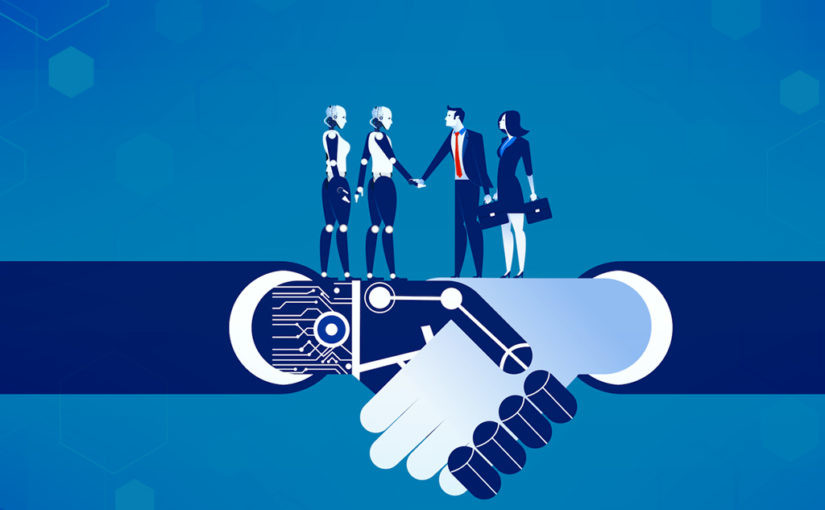
Personalizing onboarding: AI can help HR professionals personalize the onboarding experience for each new employee. AI-powered tools can assess the new employee's skills and interests, and then provide them with tailored onboarding materials and training. This can help new employees get up to speed quickly and feel more engaged with their new role.
Enhancing employee engagement: AI can help HR professionals enhance employee engagement by identifying and addressing employee pain points. For example, AI-powered tools can analyze employee surveys and social media posts to identify common concerns. HR professionals can then use this information to develop initiatives to address these concerns and improve the employee experience.
Aiding performance management: AI can help HR professionals improve performance management by providing them with real-time insights into employee performance. AI-powered tools can track employee progress toward goals, identify areas where employees need support, and provide feedback to employees. This can help HR professionals and managers ensure that employees are performing at their best.
Optimizing learning and development: AI can help HR professionals optimize learning and development for employees. AI-powered tools can identify the skills and knowledge that employees need, and then recommend personalized training programs. This can help employees develop the skills and knowledge they need to be successful in their roles.
Providing valuable HR analytics and predictions: AI can help HR professionals make better decisions by providing them with valuable analytics and predictions. AI-powered tools can analyze employee data to identify trends and patterns. HR professionals can then use this information to make informed decisions about everything from talent acquisition to workforce planning.
Overall, AI has the potential to make HR more efficient, effective, and strategic. By automating tasks, improving recruitment, personalizing onboarding, enhancing employee engagement, aiding performance management, optimizing learning and development, and providing valuable HR analytics and predictions, AI can help HR professionals create a better work environment for everyone
0
0 Comment
| Posted on
Artificial Intelligence (AI) has rapidly emerged as a transformative force across various industries, and Human Resources (HR) is no exception. AI has the potential to revolutionize HR practices, making them more efficient, data-driven, and employee-centric. In this essay, we will explore how AI can improve human resources in several key areas.
1. Talent Acquisition and Recruitment:
AI can significantly enhance the talent acquisition process. Traditional recruitment methods often involve manual screening of resumes and cover letters, a time-consuming and error-prone process. AI-powered tools can automate resume screening by analyzing candidate profiles, identifying relevant skills, and even predicting a candidate's fit for a particular role.
Moreover, AI-driven chatbots and virtual assistants can engage with job applicants, answer their queries, and provide a seamless candidate experience 24/7. They can schedule interviews, collect initial information, and rank candidates based on predefined criteria. This streamlines the recruitment process and ensures that HR professionals spend their time on more strategic tasks.
AI can also help in sourcing candidates by scanning the web and databases for potential matches. This not only saves time but also ensures a broader talent pool is considered, leading to more diverse and qualified hires.
2. Employee Onboarding and Training:
Once candidates are hired, AI can assist in their onboarding and training. Chatbots and virtual assistants can provide new employees with essential information about the company, its policies, and procedures. They can also guide employees through necessary paperwork and training modules, ensuring a smooth and consistent onboarding experience.
AI-driven personalized training programs can adapt to individual learning styles and needs. By analyzing employee performance and feedback, these systems can recommend additional training modules or resources, fostering continuous learning and development.
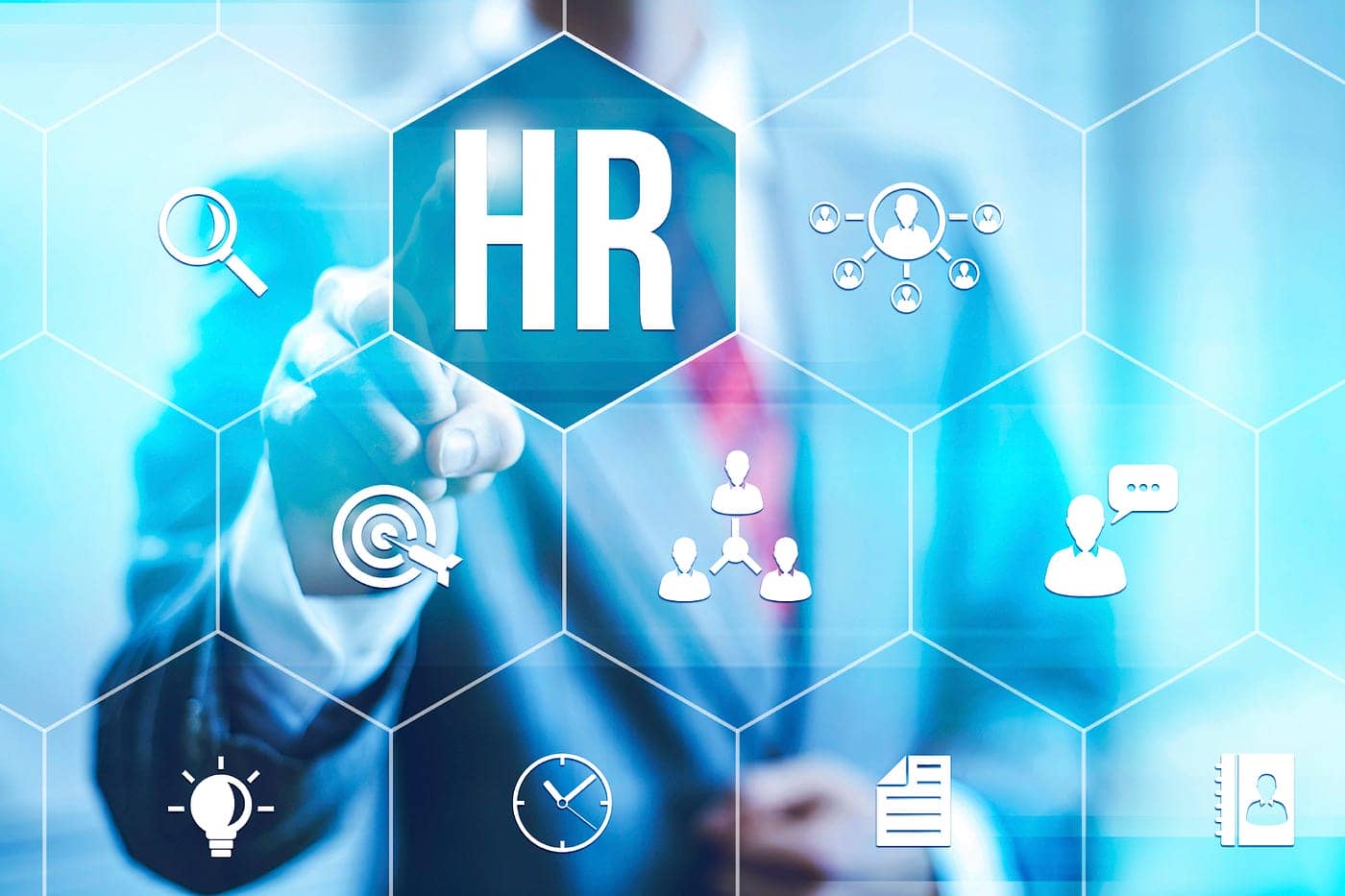
3. Employee Engagement and Retention:
Maintaining high levels of employee engagement and retention is a critical HR concern. AI can analyze employee data, such as performance reviews, surveys, and feedback, to identify trends and patterns that may indicate issues with engagement or potential attrition.
Sentiment analysis tools can assess employee sentiment from various sources, such as emails, chat messages, and social media, to detect early signs of dissatisfaction. HR can then take proactive measures to address these concerns, such as implementing changes to policies, improving communication, or offering career development opportunities.
Predictive analytics can help HR identify employees who are at a higher risk of leaving the company. By understanding the factors contributing to attrition, HR can develop targeted retention strategies, including personalized career development plans and incentives.
4. Performance Management and Feedback:
AI can assist in performance management by providing data-driven insights. Managers can use AI-powered tools to set performance goals, track progress, and provide timely feedback. These tools can analyze employee performance metrics and compare them to benchmarks, helping managers identify areas where improvement is needed.
360-degree feedback systems, powered by AI, can collect input from peers, subordinates, and supervisors to provide a comprehensive view of an employee's performance. This data can be used to tailor individual development plans and foster a culture of continuous improvement.
5. HR Analytics and Decision-Making:
AI's most significant impact on HR may come from its ability to analyze vast amounts of data quickly and accurately. HR departments often deal with extensive data related to recruitment, performance, compensation, and employee satisfaction. AI-powered analytics tools can process this data to extract meaningful insights.
0
0 Comment
| Posted on
What is AI?
AI is a field of computer science that creates systems and machines that can perform a task that requires human intelligence. AI systems simulate human-like cognitive functions, process and analyze vast amounts of data, draw conclusions, and make informed decisions.
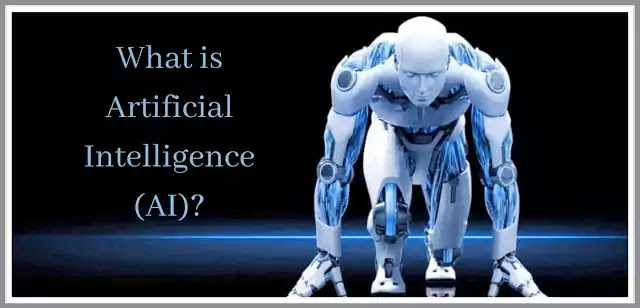
Role of AI in Human Resources:
1) Recruitment and talent acquisition: AI can screen resumes, match candidates according to requirements, and use chatbots to conduct initial interviews.
2) Employee onboarding: Initially virtual assistants like chatbots can guide new employees and also help to automate documentation processes like contracts and training materials.
3) Training and development: AI can analyze personalized skills and performance and based on it recommend the required training programs. AI-powered chatbots also assist by answering their questions and providing learning materials.
4) Employee engagement: AI can collect employees' feedback and recommend areas to HR professionals that need improvement to provide maximum customer satisfaction. AI-powered chatbots can assist employees in solving their queries and providing necessary information and policy inquiries.
5) Performance management: AI can predict the future performance of employees and can identify the areas for improvement.
6) Workforce planning analysis: AI can predict the future workforce needs and based on it can reduce employee turnover and help HR to develop strategies to retain talented employees.
7) Diversity and inclusion: Using AI-powered chatbots in HR can reduce biases and can avoid issues as the entire process and management is done by AI Chatbots.
8) Compliance and risk management: AI can continuously monitor HR processes and detect any issues in advance.
9) Chatbots for helpdesk: AI-powered chatbots help to handle routine inquiries provide policy information to users and routing complex issues to HR professionals when required.
10) Employee wellbeing: AI-powered tools like chatbot can by analyzing data from survey responses, helping HR teams to identify potential burnout or stress-related issues.
0
0 Comment
| Posted on
AI (Artificial Intelligence) has the potential to significantly improve various aspects of human resources (HR) management by automating tasks, enhancing decision-making, and optimizing processes.
Here are some ways AI can bring positive changes to HR:
1. Recruitment and Talent Acquisition:
-Automated Resume Screening: AI can analyze resumes and applications to match candidates with job requirements, saving time and improving accuracy.
-Candidate Sourcing: AI-powered tools can search various online platforms to identify potential candidates who match the desired skills and qualifications.
-Chatbots for Initial Screening: Chatbots can engage with candidates, answer their questions, and conduct initial screening interviews, providing a consistent and efficient experience.
2. Employee Onboarding:
-Personalized Onboarding: AI can tailor onboarding experiences to individual employees' needs, delivering relevant information and training materials.
-Virtual Assistants: Chatbots can guide new employees through the onboarding process, helping them complete paperwork, learn about company policies, and access resources.
3. Employee Engagement and Retention:
-Sentiment Analysis: AI can analyze employee feedback, surveys, and social interactions to gauge employee sentiment and identify potential issues.
-Predictive Analytics: AI algorithms can predict employee attrition by analyzing historical data, helping HR take proactive measures to retain valuable employees.
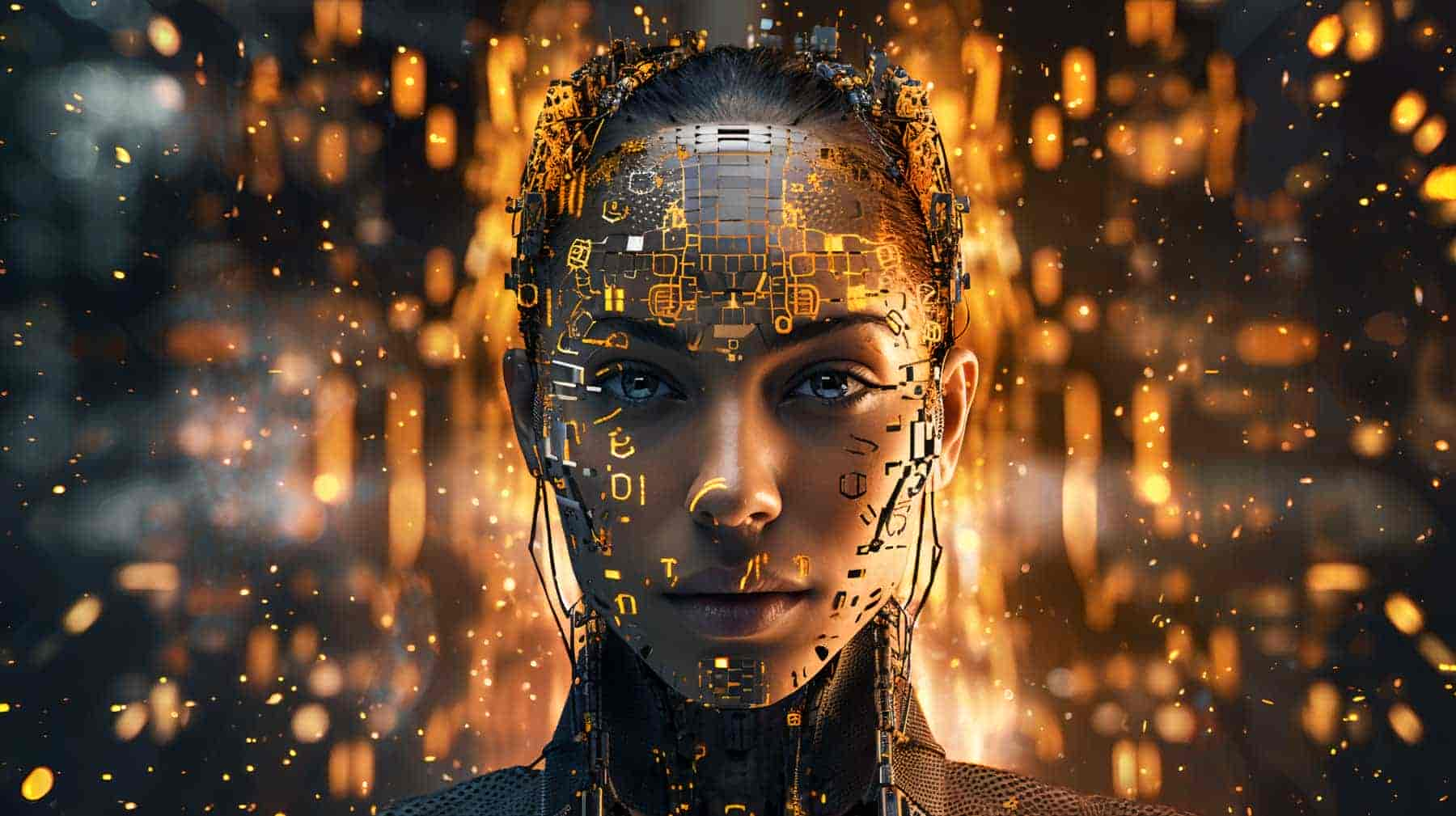
4. Performance Management:
-Data-Driven Assessments: AI can analyze performance data to provide insights into employees' strengths, weaknesses, and areas for improvement.
-Real-time Feedback: AI-powered tools can provide instant feedback to employees based on their work, helping them improve performance and skills.
5. Learning and Development:
-Personalized Training: AI can recommend training and development opportunities based on an employee's role, skills, and career goals.
-Adaptive Learning: AI-driven platforms can adjust the learning experience in real time based on an individual's progress and comprehension.
6. HR Analytics and Reporting:
-Data Analysis: AI can analyze large volumes of HR data to identify trends, patterns, and insights that can inform strategic decisions.
-Predictive HR Analytics: AI algorithms can predict workforce trends, such as future hiring needs and potential skills gaps.
0
0 Comment
